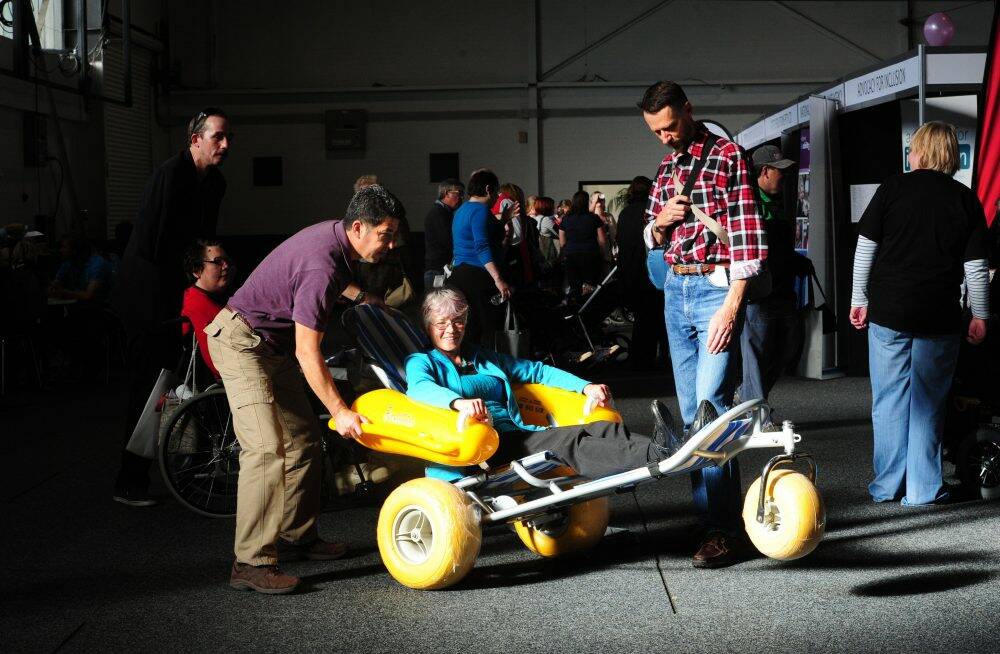It's bright yellow and floats and was one of the stars at the disability expo in Canberra on Thursday.
Subscribe now for unlimited access.
or signup to continue reading
The floating beach wheelchair is being marketed by a Canberra company to help people with mobility issues get into the water.

Company director Bob Parker said his group came up with the idea of importing the units after marketing matting to provide beach access for wheelchairs.
The Control and Choice Expo was organised by Canberra group Advocacy for Inclusion to show people with a disability what type of services they might buy when the National Disability Insurance Scheme begins in the ACT on July 1.
The bright floating wheelchair attracted a lot of attention as hundreds of people cruised the stands set up by about 100 community organisations and private companies.
“It's the only one available at the moment which takes a person fully into the water and gives them that feeling of being submerged and floating,” Mr Parker said.
He is already selling floating wheelchairs to people in other states where the NDIS has begun trials.
“We are optimistic the scheme will provide some opportunities,” he said.
Advocacy for Inclusion general manager Christina Ryan said research conducted by her group late last year showed people with a disability wanted to exercise the choice about services they will have under the scheme, such as buying a wheelchair or hiring a carer.
“They won't just have to take whatever is given to them, they will actually be able to make the choice,” Ms Ryan said.
“We realised that people want to make these decisions, they want to be involved in what their lives are going to look like but they have no way of knowing what they could do.
“This group of people can't go Googling, most of them don’t have internet access, they can't go shopping easily on a Saturday around Canberra to see what's there because they need someone to help them get out.
“So we needed to bring it all together in the expo so people could come to one place and have a look.
“They have been given no information or preparation, they don't have the skills, these are people who have largely spent most of their life having other people make those decisions for them.”
The introduction in the ACT will happen faster than in other states and will involve the entire population, not just one age cohort as is happening at other trial sites.
Ms Ryan is confident private operators will fill the gap as the ACT government withdraws from early intervention services over several years.
However she said people are still unsure what the NDIS will look like and how it will work.
“All of us are in that position because the NDIS hasn't been in a position to tell us a lot,” she said.
“There are lot of questions people haven’t had answered and that has led to a lot of anxiety and a lot of concern.”
Ms Ryan had hoped the National Disability Insurance Agency would have conducted an educational campaign late last year, not next month, as planned.
“I think a lot of us would've like to see this happen before now, they really have left that to the last minute,” she said.
“They are only starting that in the first week of June and, a month later, people are supposed to be starting to sign up for the scheme.”
ACT Minister for Disability Joy Burch said the NDIS was already having a positive impact on the disability sector.
“With new initiatives like the Control and Choice Expo it’s evident that the NDIS is already changing the way people think about disability services,” Ms Burch said.
“We are seeing a shift to a new environment where people with disability will have more opportunity to choose what they want from their service providers, rather than just getting what is available. And that’s a good thing.”

